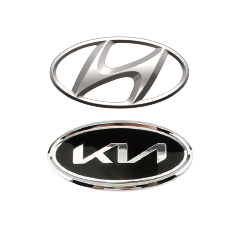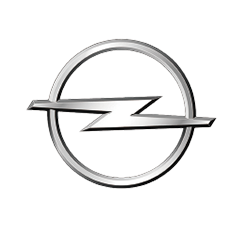"FOB" (Free On Board)
(FOB) FOB price, also known as "the price of delivery on board", abbreviated as FOB, is one of the commonly used trade terms in international trade. It refers to the port of departure to the destination of the transport costs and insurance costs borne by the buyer, not included in the settlement price of the sale price.
In FOB transactions, the buyer is responsible for sending a ship to take delivery of the goods, and the seller should load the goods onto the ship designated by the buyer at the port of shipment and within the period stipulated in the contract, and notify the buyer in time. When the goods are loaded onto the designated vessel at the port of shipment, the risk is transferred from the seller to the buyer. In this term, the risk we need to bear is to deliver the goods to the customer's forwarder's designated place, but we should pay attention to one point in this term is the cost. The cost is composed of: domestic freight + port local miscellaneous fees, generally we tend to miss the port of the local miscellaneous fees. As the customer designated freight forwarder will charge a higher fee than our own freight forwarder, so we must pay extra attention to our customers when quoting, or this is the point where our profits are reduced.
We give the customer FOB price, then we give the customer the price of the offer is composed of: domestic freight + local port charges + cost of goods. We must not FOB recorded as EXW to calculate the cost, otherwise it will be part of the cost of less, perhaps that part of the cost is precisely our own profits.
That we know that there is FOB, then there must be CIF, for a long time, people are accustomed to the international trade FOB price conditions called FOB prices, so that the price terminology including freight and insurance premiums CIF said that the CIF price.
But the real CIF is not CIF, but DES, DES refers to the destination port ship delivery, the seller must be responsible for delivery to the destination port on board until, responsible for all the costs and risks of the goods to the port before the goods on board to the buyer's disposal, but do not handle the import of goods clearance procedures, the seller that is the completion of delivery.
CIF is not CIF because CIF risk transfer boundary is also the shipment side of the ship instead of the port of destination. Because the CIF term belongs to the form of delivery, that is, after delivery at the port of shipment ship side, the risk is transferred to the consignee, and do not need to send the goods to the customer's designated port before the completion of delivery.
For example, using CIF price term contract, if the ship has not sailed away from the port of shipment on the reef sinking, the buyer is unable to submit a claim to the seller, the reason is that the risk of crossing the ship's side has been transferred to the buyer, the buyer can only be based on the insurance contract to the insurance company to make a claim, which indicates that the seller for the risk and is not responsible for the port of destination. So we should not mistake CIF for CIF.
For FOB we should pay special attention to the port of embarkation of miscellaneous fees, because we talk to the customer after all the costs we will know the customer's designated freight forwarder information, then that time we miss to know the customer's designated freight forwarder to charge the cost of the standard, then the cost of the cost and the difference between our budget will cause some losses to us.
So we have to ask the customer to specify the freight forwarder information to go with them to check how much we ship this batch of local port charges, to do the most accurate offer, do not let their own budgeted profits just go away.
And FOB customers must specify the freight forwarder! Worried about the release of goods without a single, what to do? First put a case
Qingdao, a furniture export company (hereinafter referred to as the seller) and South Korea (hereinafter referred to as the buyer) signed a trade contract, Qingdao company to South Korea to export a wooden furniture, the trade mode for FOB. sellers prepare the goods according to the buyer's instructions to Qingdao freight forwarder A booking and delivery, freight forwarder A to the seller to deliver a full set of the original bill of lading, the bill of lading issuer for the company B. The seller got the bill of lading according to the agreement.
After getting the bill of lading, the seller claimed the payment from the buyer according to the agreement with the copy of the bill of lading, but did not see the payment from the consignee until the goods arrived at the port of destination. Although the bill of lading is still in their hands, but, after all, the payment has not been received, and then returned or resold to a third party to bring a small loss, so the seller continued to urge. However, later, the seller learnt that the goods have been lifted, the buyer will not pay again! The bill of lading was in hand, how could the goods be lifted so the seller sued to the court to pursue the carrier's responsibility. The court ruled that the carrier, Company B, was liable. However, the question is, the carrier has enough compensation ability? Currently, dare to release goods without a bill of lading business is usually this: purse company or far away from overseas, want to make its responsibility, I'm afraid it is not easy.
FOB means that the buyer designates the carrier (usually foreign freight forwarders and their agents in China), the buyer controls the transport; freight forwarders tend to listen to the buyer, or even be directly controlled by the buyer; release of goods without a bill of lading usually occurs in this case!
This type of trade usually produces two sets of bills of lading: shipowner's bill and forwarder's bill. Freight forwarders to themselves (or their agents) as shipper to the shipping company booking, to obtain the shipowner's list; domestic exporters to get the bill of lading issued by the freight forwarder (or even do not get a bill of lading), the consignor, the consignee is usually shown as the seller and the buyer.
Freight forwarders from the shipping company to obtain a shipowner's list directly after the agent can send it to foreign countries, foreign freight forwarders can receive the shipowner's list from the shipping company to pick up the goods. As for the foreign freight forwarder will deliver the goods to the actual consignee whether to recover the freight forwarding list, this is another matter. Once the foreign forwarder in the delivery of goods to the consignee will not require the consignee to return the original bill of lading, then the consignor's hands on the bill of lading in a sense can be identified as waste paper.
How is the release of goods without a bill of lading?
FOB means that the buyer designates the carrier (usually foreign freight forwarders and their agents in China), the buyer controls the transport; freight forwarders tend to listen to the buyer, or even by the buyer's direct control; release of goods without a bill of lading usually occurs in this case!
This type of trade usually produces two sets of bills of lading: shipowner's bill and forwarder's bill. Freight forwarders to themselves (or their agents) as shipper to the shipping company booking, to obtain the shipowner's list; domestic exporters to get the bill of lading issued by the freight forwarder (or even do not get a bill of lading), the consignor, the consignee is usually shown as the seller and the buyer.
Freight forwarders from the shipping company to obtain a shipowner's list directly after the agent can send it to foreign countries, foreign freight forwarders can receive the shipowner's list from the shipping company to pick up the goods. As for the foreign freight forwarder will deliver the goods to the actual consignee whether to recover the freight forwarding list, this is another matter. Once the foreign freight forwarder in the delivery of goods to the consignee will not require the consignee to return the original bill of lading, then the consignor's hands on the bill of lading in a sense can be regarded as waste paper.
In the end, which delivery method is safer
Facts have proved that in the export business, as the seller according to the specific circumstances of the transaction, carefully select the appropriate trade terms for the prevention of foreign exchange risks, improve economic efficiency is very necessary. Here are a few issues that should be noted in the choice of trade terms. Generally speaking, in the export business using CIF or CFR terms than the use of FOB favourable transaction. Because, in the CIF conditions, the international sale of goods involved in the three contracts (contract of sale, contract of carriage and insurance contract) by the seller as the parties, he can according to the situation of co-ordination of arrangements for the preparation, shipment, insurance and other matters, to ensure that the operational process of the interconnection of each other. In addition, it is conducive to the development of the shipping and insurance industries of the country and increases the income from trade in services. Of course, this is not absolute, should be based on the specific circumstances of the goods traded first consider their own arrangements for transport with or without difficulty, and whether the economy is cost-effective and other factors.FOB risk also lies in the fact that if the designated freight forwarder can not directly booking, and through other professional shipping lines forwarder booking, then there is no real control of the right to transport the property, resulting in the transport problems, can not be resolved in a timely manner.
The seller may say, this FOB goods, transport is not our responsibility, has nothing to do with us, I do not need to worry about. Precisely this point of view some problems, because when the goods transport line is a multiple choice, when the transport time is extended, the increase is the increase in the cycle of the flow of funds manufacturers. For example, the same to South America, some ships have to sail about 60 days, some as long as half the time is enough (I will not say the specific shipping company, the manufacturer booking remember to ask the voyage, this is very important), which will delay the time of collection of money from customers. The consignee sometimes in order to reduce transport costs, do not hesitate to specify the voyage longer ship transport, such behaviour is understandable, of course, there are some manufacturers because of storage reasons, willing to go longer voyage time of the ship, can reduce storage costs. If the value of goods is less, then see nothing, if the value of goods is large, slow payment of guests will lead to uncertainty about the exchange rate, I think manufacturers have a very deep experience of it, now the exchange rate, a day a change, the exchange rate, we have to pay attention to the problem.
If you have no choice but to use FOB conditions when the transaction notes
1. For the buyer to send a ship to the port loading time should be clearly stipulated in the contract, so as to avoid the seller's goods have been prepared, the ship is late, delayed loading things happen. 2. Increase the proportion of the deposit to reduce the probability of customer backwash. When the freight way can not argue with the customer, in the payment method must hold the bottom line, rather than earn less or not do business, but also can not take the risk of losing money.
3. In the trade contract between the buyer and seller agree on a good freight forwarding company, not necessarily limited to a certain one, if the carrier and bill of lading is not filed in the Chinese Ministry of Transportation, then we have to be careful. (The record of the bill of lading and the carrier is required to pay the deposit, which makes the bill of lading relatively safe.) If the buyer has to be paranoid about his opinion, the seller has to consider the risk. Accept the well-known shipping company and insist on using the bill of lading of the shipping company, and try to avoid using the designated overseas freight forwarder and the bill of lading issued by it. At the same time, the owner of the goods should require our freight forwarder in the agent of the foreign forwarder for port of shipment procedures issued a letter of guarantee, commitment to be designated by the foreign forwarder to arrange for the transport of goods in the port of destination must be released under the letter of credit with the bank flow of the original bill of lading, or else to bear the responsibility for the compensation of the release of goods without a single bill of lading, only in this way, once there is a release of goods without a single bill of lading, there is a basis for claiming damages.
4. In the case of FOB exports, in the contract must be clear by the consignor to commission the freight forwarder or NVOCC to the shipping company to booking, can not give the right to booking to the buyer, because the booking and delivery obligations are unified. Bill of lading in the shipper (shipper) column must be filled in the name of the consignor (seller). The consignor holds the right to commission booking, also holds the right to control the goods. If the buyer's credit is good, and the resale of goods in transit requirements, the buyer as the shipper can also be. If you do not know the buyer's credit, from the security point of view, or the seller as the shipper's best.
5. The use of the bill of lading to the issuer as the consignee of the instructions is also desirable, so that the bank can tightly control the right to goods, to prevent the risk of releasing the goods without a bill of lading.
6. Vote in the letter of insurance, hedge risk. Understand the countries and regions they do not insure as well as the blacklisted customers before casting, and learn more about the cases that CITIC Insurance refused to pay compensation to avoid adding insult to injury.
What should the seller do in the event of non-documentary release of goods? The advice given online include looking for embassies, international lawsuits, a variety of blacklisting, looking for debt collection companies, not to mention that the customer is not a professional fraud, will not be cunning, there are several companies, there is no yakuza background, the threat is not to care about, just to follow up on the ocean to follow up and inevitably, exhausted, and then the next business do not have to do.
Property rights is the most important thing in foreign trade, don't bury your head in the bargain all day and fall into the trap set by others. Still, it is better to remedy the situation after the fact than to prevent it from happening in the first place."




